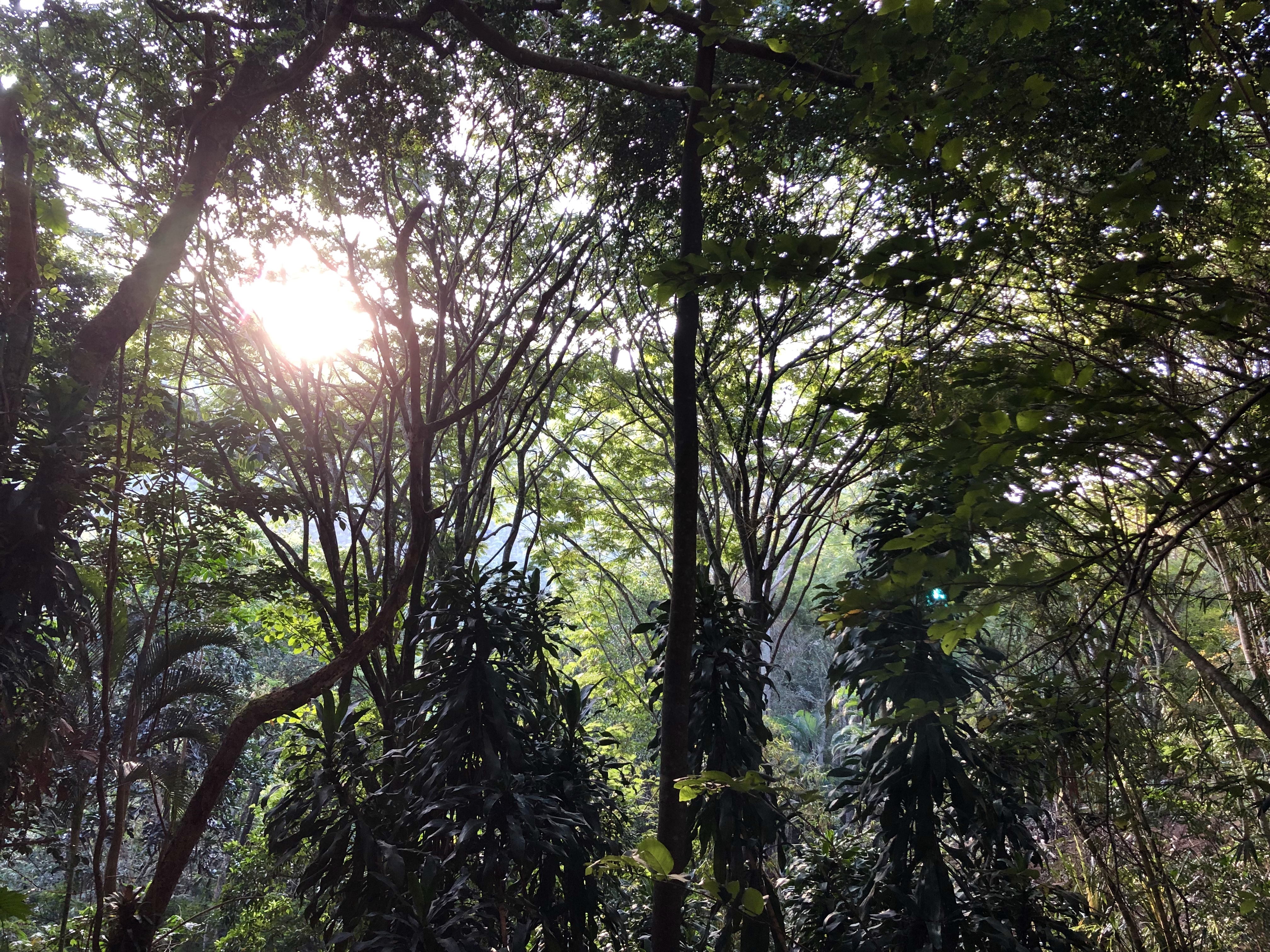
S ri Lanka Position Paper To the UN Conference for Climate Change (COP21) Paris 1-10 December 2015 Sri Lanka is a vulnerable island in the face of Climate Change. An increase in the intensity of rainfall, will erode our mountains and create increased flood damage. An increase in the sea level will render much of our productive agricultural lands saline. An increase of ambient temperatures will reduce our agricultural productivity. We are in agreement with the view that an increase of the Carbon Dioxide concentration in our atmosphere will contribute to this vulnerability. We are aware of the great difference in carbon dioxide that is emitted from biological sources and carbon dioxide emitted from fossil sources. One has sequestered rates measured in thousands of years while the other in millions of years. Yet the cost is still the same. We would request the IPCC to address the relative costs of each. We are aware that the optimum operating temperature of chlorophyll is at 37 deg C. In a warming world where temperatures will soar well above that, food production will be severely impacted. We would request the IPCC to address responses to this phenomenon.

We are aware that the critical Ecosystem services such as; production of Oxygen, sequestering of Carbon, water cycling and ambient cooling is carried out by the photosynthetic component of biomass. This is being lost at an exponential rate, due to the fact that these Ecosystem Services have not been valued, nor economically recognized. We would request the Intergovernmental Panel on Climate Change ( IPCC) to examine the value of photosynthetic biomass. Sri Lanka will place her development agenda on a fossil free target and will promote an economic recognition of the ecosystem services generated by the photosynthetic biomass. In this way we offer to act in a globally responsible manner as well as to contribute in creating a cushioning effect for the climate extremes that are before us.
Document de Synthèse du Sri-Lanka
A la conférence des Nations-Unies sur le Climat (COP21)
Paris, 1er - 10 décembre 2015
The Sri Lanka est une île vulnérable face au changement climatique. L’intensité croissante des pluies contribue à l’érosion de nos montagnes et augmente les dégâts liés aux inondations. L’augmentation du niveau de la mer rend nombre de nos terres agricoles productives salines. Le réchauffement climatique affecte notre productivité agricole. Nous sommes tous d’accord en attestant que l’augmentation du taux de dioxyde de carbone dans notre atmosphère contribue à cette vulnérabilité.
Nous connaissons la grande difference qu’il y a entre le dioxyde de carbone de sources biologiques et le dioxyde de carbone de sources fossiles. Le taux de séquestration de l’un est mesuré sur des milliers d’années, celui de l’autre, sur des millions d’année. Pourtant, leur coût est le même. Nous aimerions alors que le IPCC (intergovernmental panel on climate change) nous indique le coût de chacun. Nous savons que la température d’exploitation optimale de la chlorophylle est de 37 degrés Celsius. Cette planète se réchauffant et les températures allant bien au-delà de cela, la production alimentaire va être sévèrement impactée.
Nous aimerions alors que le IPCC (intergovernmental panel on climate change) réponde à ce phénomène. Nous savons que les services écosystémiques essentiels – tels que la production de l’oxygène, la sequestration du carbone, le cycle de l’eau, la baisse des températures – sont issus des composants photosynthétiques de la biomasse. Nous perdons cela de manière exponentielle, et cela est du au fait que ces Services Ecosystémiques n’ont pas été bien valorisées, ni suffisamment reconnue économiquement. Nous souhaitons que le IPCC examine la valeur photosynthétique de la biomasse. Le Sri Lanka se fixe comme objectif le « sans énergie fossile », et souhaite promouvoir la reconnaissance économique des services écosystémiques générés par la biomasse photosynthétique. Ainsi, nous proposons d’agir de manière globale et responsable et de contribuer à atténuer les conditions climatiques extrêmes qui nous attendent.
Sri Lanka Position Paper
To the UN Conference for Climate Change (COP21) Paris 1-10 December 2015
Wat betreft klimaatverandering is Sri Lanka een kwetsbaar eiland. Een toename van regenval zal onze bergen eroderen en zal schade veroorzaken door overstromingen. De zeespiegelstijging zal onze vruchtbare landbouwgrond verzouten. Een stijging in temperatuur zal onze agrarische productiviteit verminderen. Wij onderschrijven de zienswijze dat een toename van de concentratie van koolstofdioxide in de atmosfeer bijdraagt aan deze kwetsbaarheid.
We zijn ons bewust van het grote verschil tussen kolstoofdioxide dat wordt uitgestoten door biologische bronnen en koolstofdioxide uit fossiele bronnen. De eerste betreft vastlegging berekend in duizenden jaren, en de tweede betreft vastlegging berekend in miljoenen jaren. Terwijl de kosten dezelfde zijn. We vragen de PPCC om de relatieve kosten van beide bronnen aan de orde te stellen.
We weten dat de optimale temperatuur van chlorofyl 37 graden Celsius is. Op een opwarmende aarde waar de temperatuur tot ver daarboven stijgt, zal dit grote gevolgen hebben voor de voedselproductie. We vragen de IPCC om oplossingen voor dit fenomeen aan de orde te stellen. We weten dat ecosysteem diensten als de productie van zuurstof, het vastleggen van CO2, de water huishouding en omgevingskoeling worden uitgevoerd door het fotosynthetische component van biomassa. Dit gaat met ongekende snelheid verloren omdat de ecosysteem diensten niet worden gewaardeerd noch economisch erkend. We vragen de IPCC om de waarde van fotosynthetische biomassa te erkennen en te onderzoeken.
Sri Lanka heeft haar ontwikkelingsagenda gebaseerd op het doel fossiel-vrij te worden en promoot de economische erkenning van de ecosysteemdiensten van fotosynthetische biomassa. Op deze manier nemen we verantwoordelijkheid in de wereld en dragen we tegelijk bij aan het creëren van een dempend effect voor klimaatextremen die zich zullen voordoen.
Documento de Posición – Sri Lanka
To the UN Conference for Climate Change (COP21) Paris 1-10 December 2015
Sri Lanka es una isla vulnerable frente al Cambio Climático. Un aumento en la intensidad de las lluvias, provocará la erosión de nuestras montañas y mayores daños por inundaciones. Un aumento en los niveles del mar, volverá salinas gran parte de nuestras tierras productivas. Un aumento en la temperature ambiental, reducirá nuestra productividad agrícola. Estamos de acuerdo con la visión de que un aumento en las concentraciones de Dióxido de Carbono en nuestra atmósfera, contribuirá a esta vulnerabilidad.
Estamos conscientes de la gran diferencia entre dióxido de carbon emitido por fuentes biológicas y dióxido de carbono proveniente de fuentes fósiles. La primera tiene tasas de secuestro que se mide en miles de años, mientras que la segunda se mide en millónes de años. Mientras tanto, los costos son los mismos. Nos gustaría que el IPCC considere los costos relativos de cada uno.
Estamos conscientes de que la temperature óptima para la producción de clorofila es 370C. En un mundo donde las temperaturas se elevarán mucho más que la mencionada, la producción de alimento tendrá un severo impacto. Nos gustaría que el IPCC provea respuestas a este fenómeno.
Estamos conscientes que los importantes Servicios Ecosistémicos tales como: producción de Oxígeno, Secuestro de Carbono, reciclaje del agua y enfriamiento del ambiente, es llevado a cabo por el componente fotosintético de la biomasa. Esto se está perdiendo a una tasa exponencial, debido al hecho de que estos Servicios Ecosistémicos no han sido valorados, ni reconocidos económicamente. Nos gustaría que el IPCC examine el valor de la biomasa fotosintética.
La agenda de desarrollo de Sri Lanka esta basada en un objetivo libre de fósiles y promoverá el reconocimiento económico de los Servicios Ecosistémicos generados por la biomasa fotosintética. De esta manera, ofrecemos actuar de manera globalmente responsable, así como contribuir a la creación de un efecto de amortiguamiento contra las extremas condiciones climáticas que estamos enfrentando.
Biomass was impacted five times in the history of life, such that a large percentage of the existing biomass was fossilised, the imperative at each response was the growth of biomass.
Sri Lanka, is ‘the canary in the coalmine’ of fossil powered economic growth. The pain of withdrawal from the addiction is felt from the cooking fires.
READ MOREAll of a sudden both the individual and society become disinterested observers. A lot of information is generated on how to perceive and understand the problem.
READ MOREWe know that the mean temperature will rise, but the speed of that increase may be much more than the Intergovernmental Panel on Climate Change (IPCC) has computed.
READ MORE